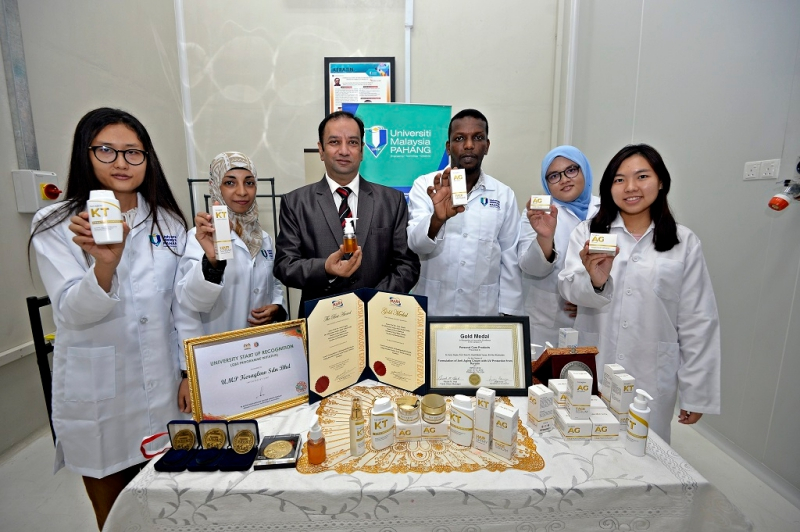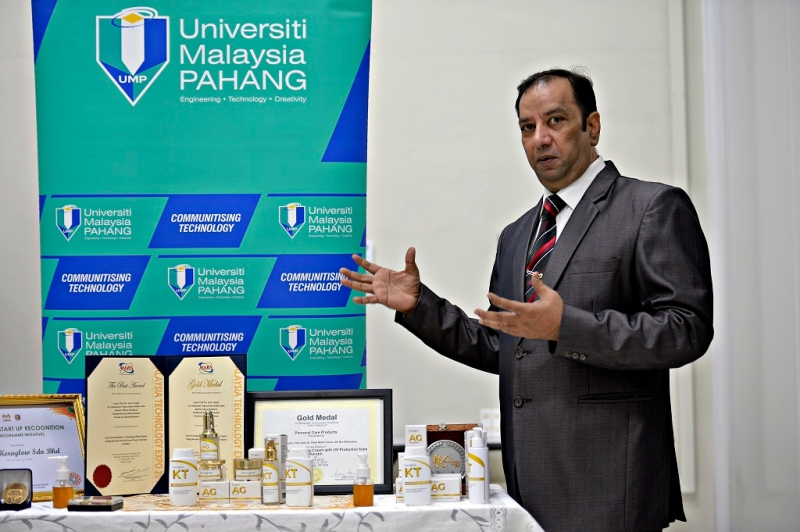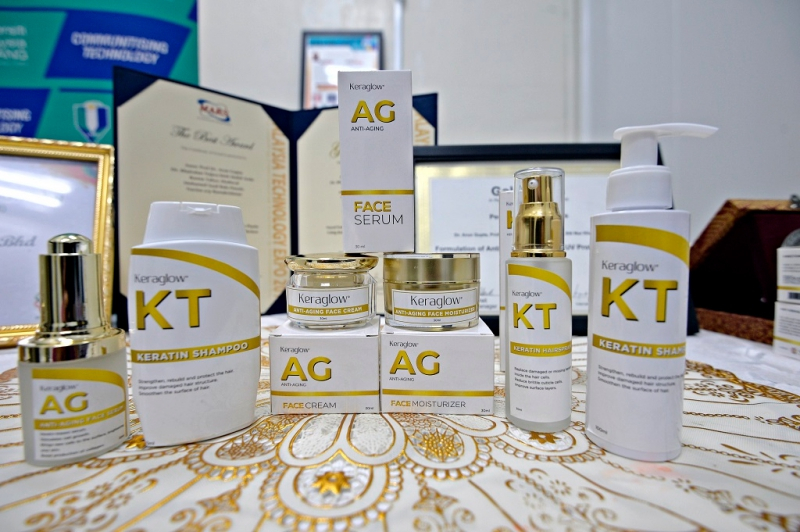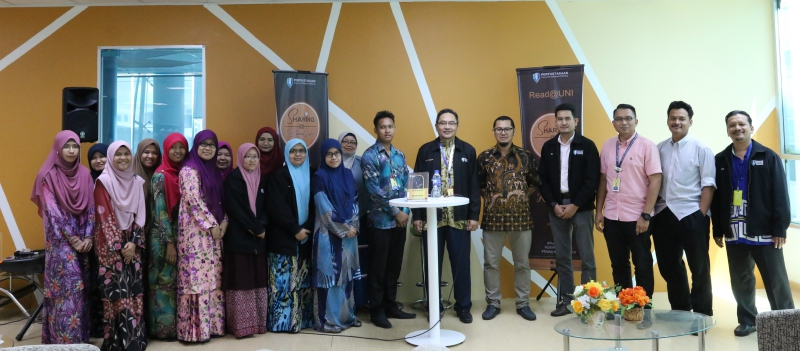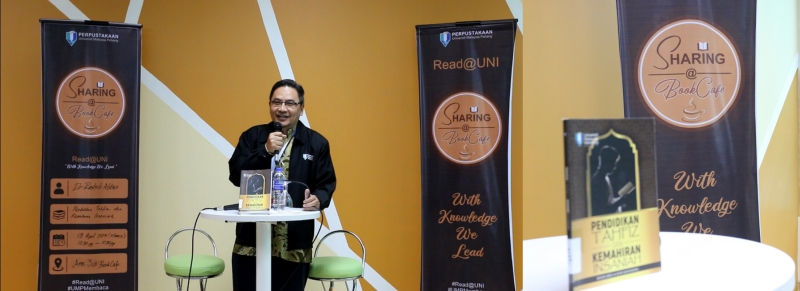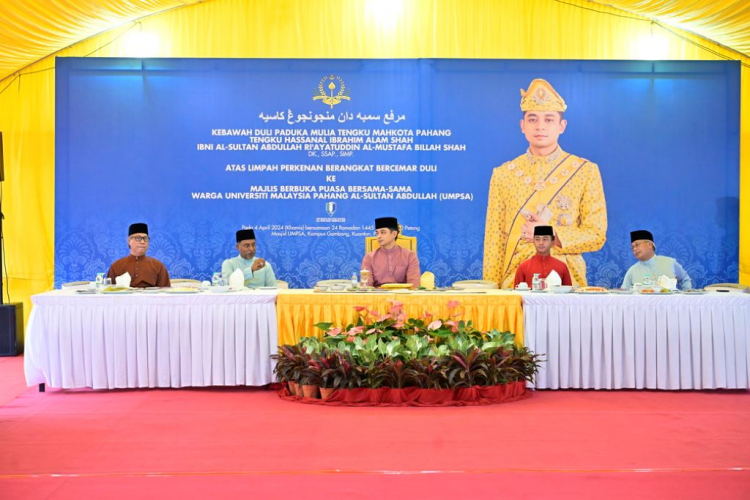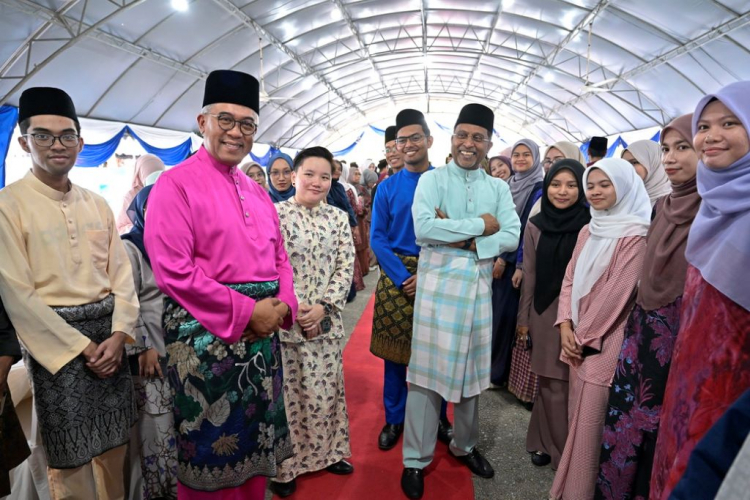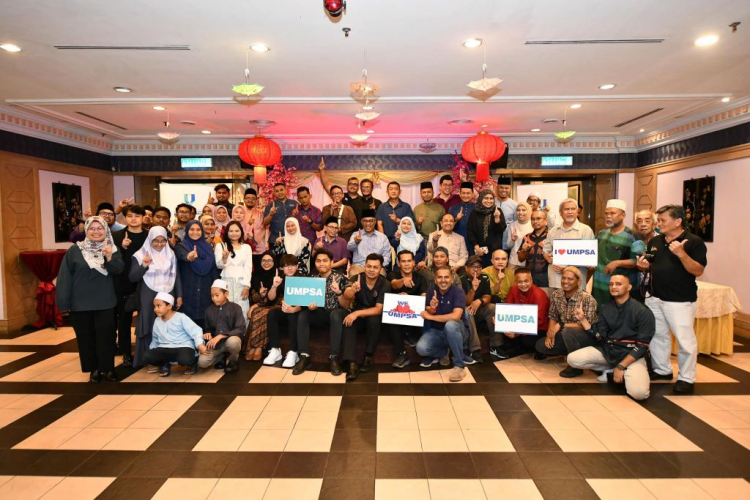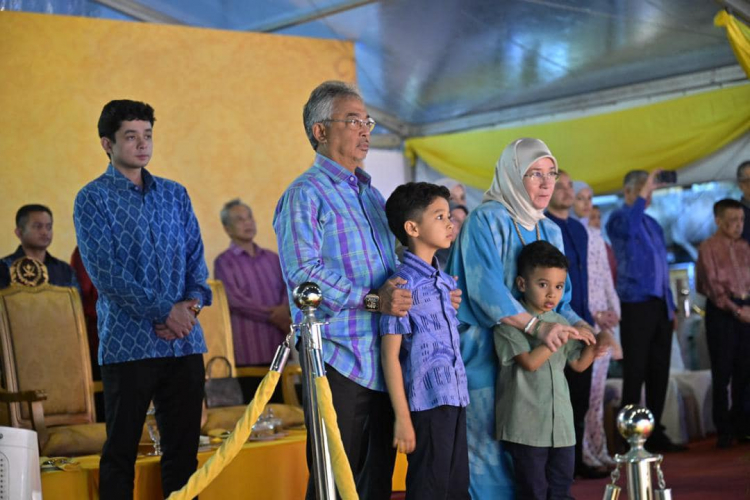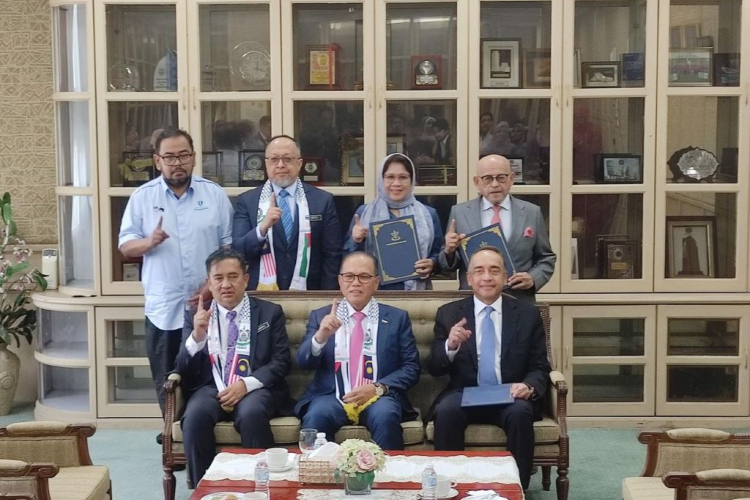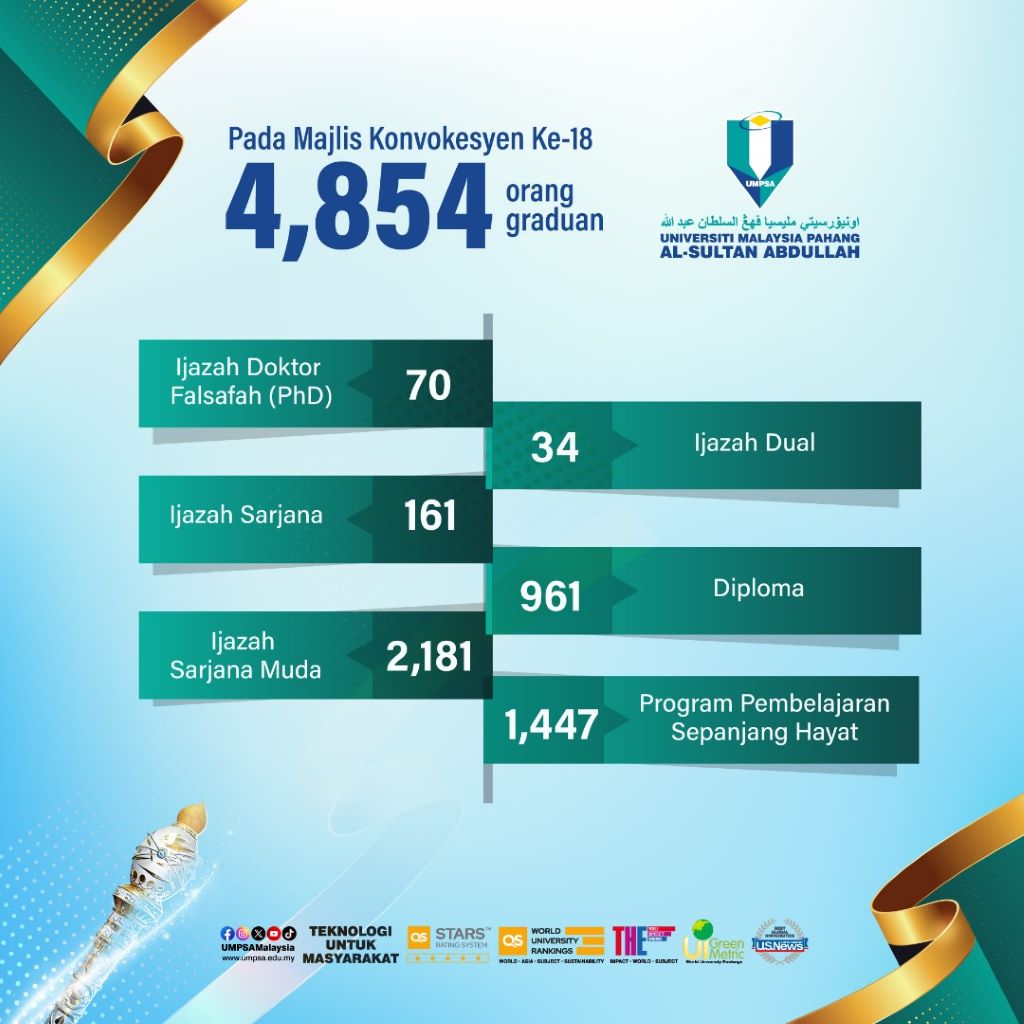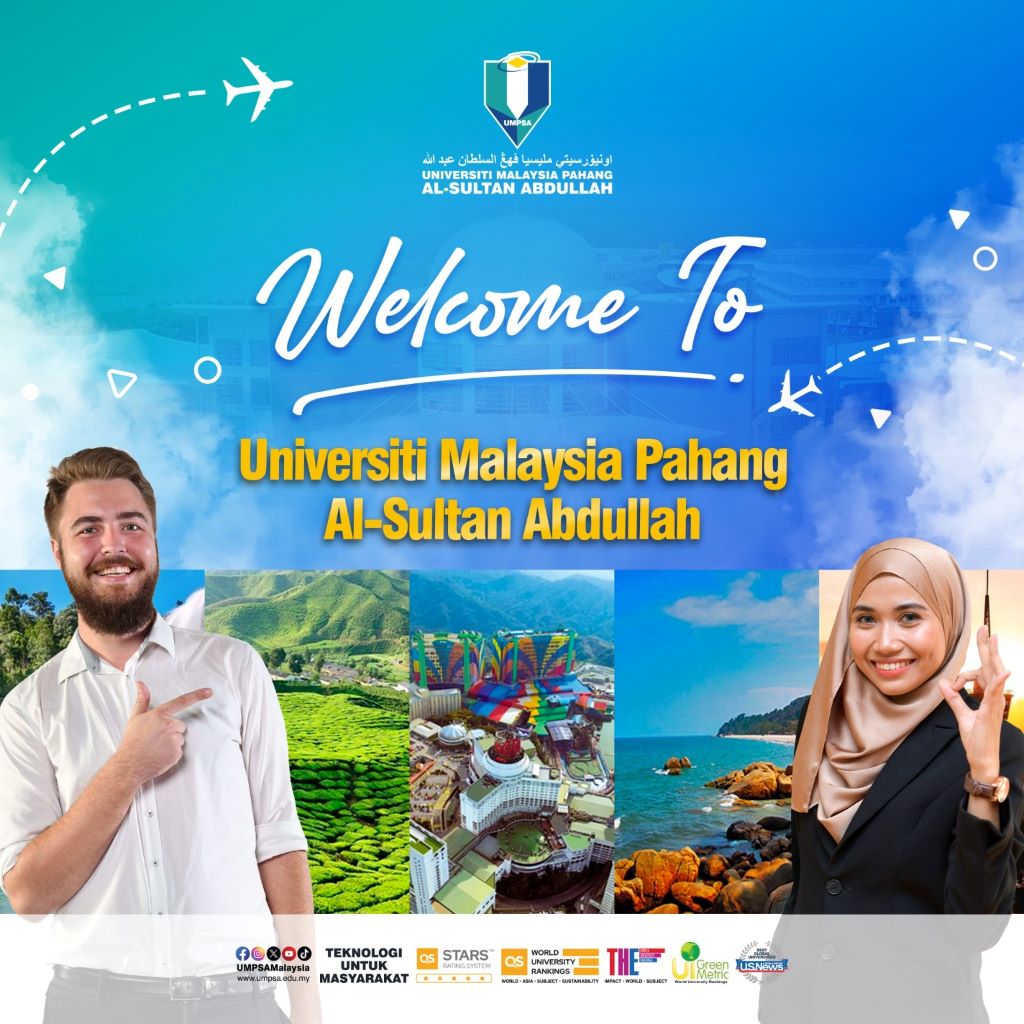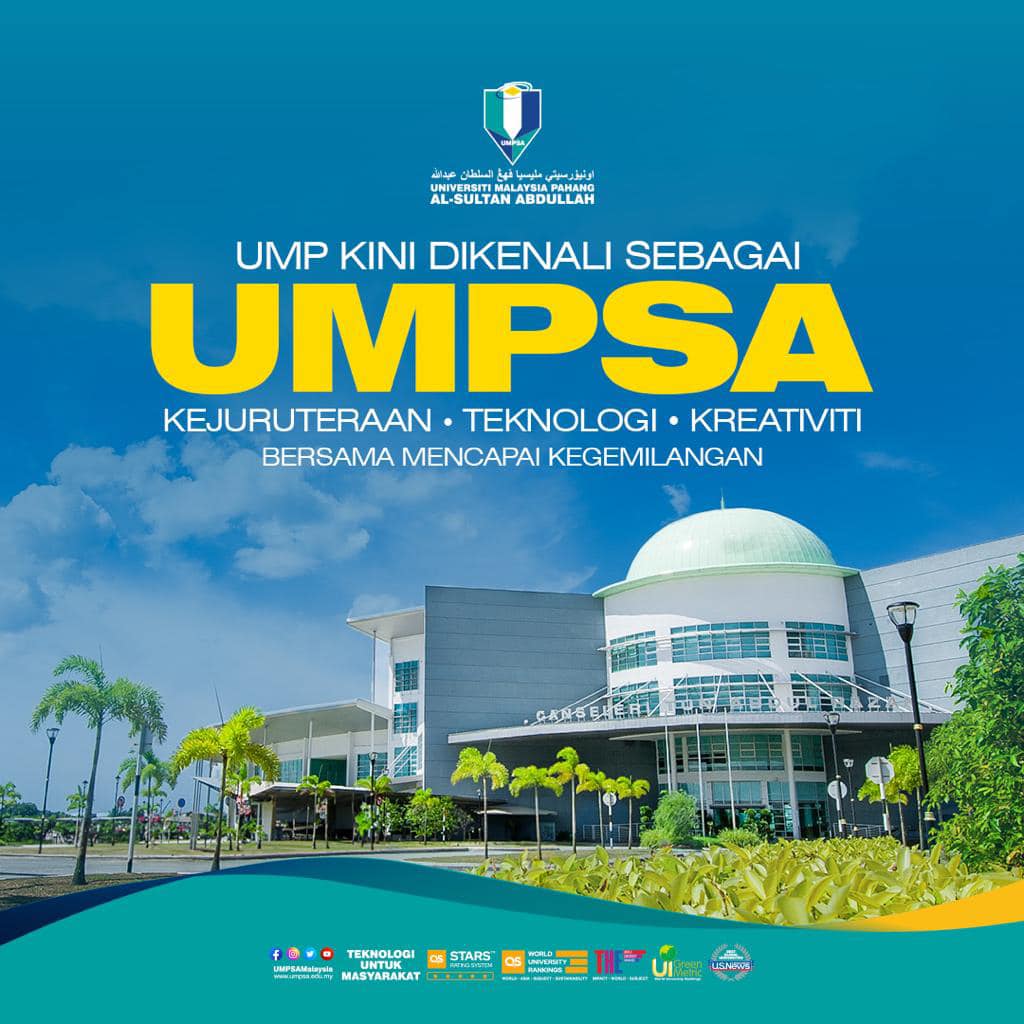 Research & Innovation UMP research leaders are Golden Globe TigersAssistant Vice-Chancellor (Corporate and Quality Affairs), Professor Dato’ Dr. Mashitah Mohd. Yusoff and Dean of Faculty of Engineering Technology, Professor Dato’ Dr. Zularisam Abd. Wahid from Universiti Malaysia Pahang (UMP) were recipients of the Golden Globe Tigers Awards 2019. Professor Dato’ Dr. Mashitah has won the The Golden Globe Tigers Award 2019 for Education Leadership Award meanwhile Professor Dato’ Dr. Zularisam for The Best Professor in Engineering Technology Studies. “They have published prolifically in top journals and continue to actively conduct research in engineering and technology," he added. The winners are then selected by a jury comprising senior professionals from across the globe who exemplify the best in Education Leadership in their respective sectors. On hand to deliver the awards was Tan Sri Abdul Aziz Abdul Rahman former Managing Director and Chief Executive Officer (CEO) of Malaysia Airlines. Research and International Associate Prof. Dr. Arun Gupta created beauty and cosmetic products from chicken feather keratin
Universiti Malaysia Pahang (UMP) researcher, Associate Professor Dr. Arun Gupta from Faculty of Chemical & Natural Resources Engineering (FKKSA) led a group of researchers to commercially produce beauty care products called Keraglow, made from keratin extracted from chicken feathers. The products included anti-aging cream, moisturiser, serum, shampoo and other hair care items. Associate Professor Dr. Arun’s research group comprised foreign and local undergraduates – Basma Yahya Alashwal (Yemen), Mohamed Saad Bala Husain (Sudan), Triveni Soubam (India) as well as Malaysians Vanessa Alberto and Liyana Maryam. Their research work had won a gold medal and special award at the Invention and New Products Exposition (INPEX) in Pittsburgh, US, a gold medal and special award at Malaysia Technology Exposition 2018 and at the Creation, Innovation, Technology and Research Exposition (CITREX) in UMP in 2017.
Their research finding served as an alternative to the placenta extracts and sheep fleece component often used in most of the beauty and skin care products available in the market. According to Associate Professor Dr. Arun, they discovered that the cost to extract keratin from sheep fleece was rather expensive. He noted that the country had a huge poultry slaughterhouses industry that disposed some four million tonnes of chicken feather annually and took advantage of the situation to conduct a research and find ways to commercialise the waste. “We found out that chicken feather consisted of 91 percent of protein, 8 percent of water and 1 percent keratin protein.
“Chicken feathers has special keratin and has 20 types of protein. Protein produced is treated for several days using the dialysis technique to remove unwanted substances that should not be present in cosmetic production,” he added. He said the chicken feathers were processed at a factory belonging to a subsidiary, UMP Keraglow Sdn. Bhd., which had received the QB3 Start-up Acknowledgement Certificate during the Bio-economy Innovation Award 2017. He also said it was the first halal facility in Malaysia to develop a wide range of pharmaceutical and cosmetic products from chicken feather keratin, adding, the facility produced 350 litre of keratin daily. The capacity was expected to increase to 1,000 litre in the next two years, he added. “To date, we have received demands from abroad and there are plans to form a collaboration with suitable strategic partner or to franchise it. “Also, for ten years, this product research has its patent registered in the United States and Malaysia for extraction method and for the development of pharmaceutical and cosmetic products,” he said. EKSA UMP Library introduced Waste4Fine programme: Fines for late return of library books with plastic drinking bottles or canned drinksBy: WAN NURULHUDA WAN ZAKARIA, UMP LIBRARY Universiti Malaysia Pahang (UMP) Library has introduced an ingenious way as part of its efforts to support the university’s green campaign-by making students pay their fines for late return of library books with plastic drinking bottles or canned drinks. The programme, Waste4Fine, is an initiative that supports UMP’s implementation of green practices towards attaining the UI Greenmetrics Rating. According to UMP Acting Chief Librarian, Dzull Zabarrod Ahmad, the programme aimed at creating awareness on the importance of recycling as well as providing an alternative for cash-strapped students to pay their fines. “The library offers high discounted rate-10 sen discount for bottles less than 1,000 ml and 20 sen for bottles more than 1,000ml. “Recycling rate in the university is still low, only 5.2 percent registered last year and we hope that with this programme, it will increase their awareness on the importance of recycling and the need to protect and preserve the environment,” he said at the official launching of the programme on March 18, 2019. Among the guests present were Pahang Solid Waste Management and General Cleaning Corporation (SWCorp) Director, Sharudin Hamid and UMP Occupational Safety and Health Management Office (OSHMO) Director, Muhammad Hairynizam Muhd Taib. The guests and audience also listened to a talk delivered by UI Greenmetrics Initiative Head and Faculty of Industrial Sciences & Technology (FIST) lecturer, Dr. Nazikussabah Zaharuddin. According to Programme Director, Hajah Siti Aishah Ghani, she hoped that it would bring about positive changes among the university community, adding, the idea for the project was mooted by the Innovative and Creative Team. The Waste4Fine initiative is available every Wednesday and during the library’s operational hours. Fines for late return of the library books can still be paid in full or partially by using the plastic bottles or canned drinks. Library staff stationed at the circulation station will update the record on the fines in its system and issue payment receipts to users who have completed making payments using the barter system. UMP had also implemented the ‘Let's Break Up with Single-Use Plastic’ to reduce the use of plastic by the campus community, another green effort by UMP Sustainability Committee, set up under the Waste Management Cluster. The aim was to instil awareness with doing away single-use plastics in the university. Various programmes on sustainable practices had been carried out including one called ‘MYTAPAU’ of which students would be given incentives if they brought their own containers to pack food from the cafeteria. UMP was listed 97th on the world ranking and 6th in Malaysia by the UI Greenmetrics World University Ranking 2018. The rating was based on efforts taken for a green and sustainable campus and environmental management, measures that were announced recently. Knowledge Management Book review on tahfiz education and soft skills by Dr. Rashidi Abbas in Sharing@BookCafe programme
By: NOORUL FARINA ARIFIN, UMP LIBRARY Universiti Malaysia Pahang (UMP) Library held a programme, ‘Sharing@BookCafe’, aimed at promoting reading and making reading part of one’s lifestyle and at hand to impart the experience was none other than Dr. Rashidi Abbas, the recipient of the National Book Award for general book in the education category. Dr. Rashidi Abbas, a senior lecturer at Centre for Modern Languages & Human Science (CMLHS), did a review on a book titled, ‘Pendidikan Tahfiz dan Kemahiran Insaniah’ (Tahfiz Education and Soft Skills) at the event held on April 18, 2019. He spoke on how interest in writing and meeting the department’s target resulted in the publication of the book. The book delved on the current development of tahfiz education, incorporating seven soft skill elements - communication skills, critical thinking and problem solving, continuing education and information management, professional ethics and moral, leadership skills, teamwork and entrepreneurial culture. With its slogan, ‘With Knowledge We Lead’, the programme was given a transformation by the library as a show of support to the National Decade Reading Campaign 2021-2030 and in line with the Ministry of Education’s aspiration to encourage the public to do more reading.
According to Acting Chief of Librarian. Dzull Zabarrod Ahmad, the ‘Sharing@BookCafe’ programme was one of the initiatives taken to mobilise the reading campaign among UMP community. “It was held for an hour in a casual and relaxed setting, to attract library users and UMP community to take part in the activity that is filled with knowledge and information,” he said. He hoped more researchers and prominent, prolific writers would be invited to share their knowledge, research findings and experience. OSH Training on Fire Rescue at FKASABy: EMMA MELATI BURHANUDDIN, FACULTY OF CIVIL ENGINEERING & EARTH RESOURCES (FKASA) Faculty of Civil Engineering & Earth Resources (FKASA) Occupational, Safety and Health (OSH) committee led by Norhayati Ismail organised a fire safety training session on April 23, 2019. The training was conducted by the Fire and Rescue Department from Taman Tas Station and supervised by experienced fire fighters Zanafi Zainal and his team mates from the Operation Unit - Mohd Khairul Izhan Mohamed and Fadly Zakri Dollah.
During the training, FKASA staff and students were given a briefing on the types of fire extinguisher available in the market but they were advised to only buy those certified by SIRIM. They learned that fire extinguishers were used to extinguish and control small fires but if the fires became bigger, it would be the task to be carried out by the fire fighters to put it out. They also got to know that there were six categories of fires:
“In most government buildings, the fire extinguishers consisted of dry powder that could be used for all types of fires and that it was simple to use,” said Zanafi. “Pull the pin, aim at the fire and squeeze the handle until the fire is out,” he added. Dean of FKASA Dr. Mohamad Idris Ali said the training was important as it helped to enhance awareness among the staff and students on some of the unexpected dangers from fires. He said it was also important for them to be equipped with basic safety knowledge on how to extinguish fire. 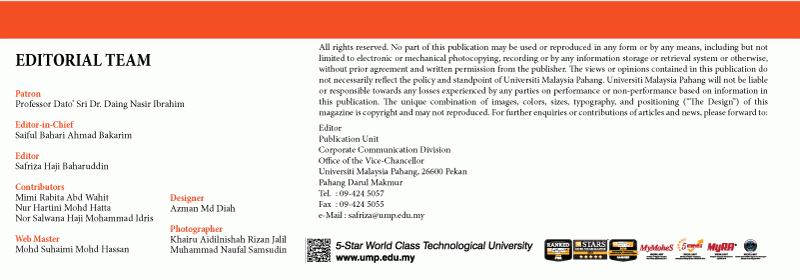 |
Harian Metro
Hidup tiada jalan mudah
Sinar Harian
Bacaan surah al-Jumu'ah bergema di padang MBK1


